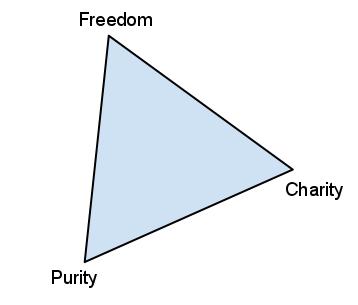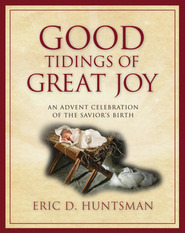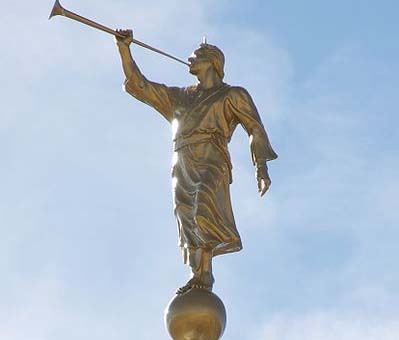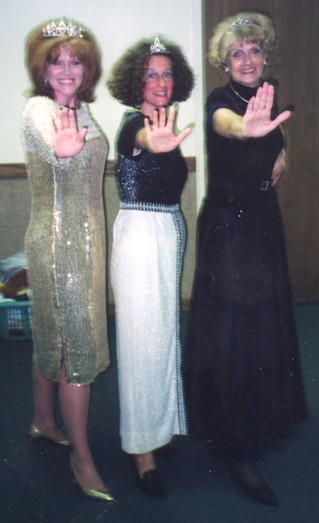Category: Cornucopia
-
Teaching from the Pew: When the Manual Authorizes Subverting the Teacher
A thought inspired by Aquinas’ review, which focuses on the teacher, instead of the manual. If I had any Photoshop skills, I’d have put the manual in the middle of that ring. Reference comes from Aquinas’ post. I taught the Teacher Training course for a few months earlier this year, which meant I spent a…
-
Power Imbalances and Dane’s Hierarchy of Christmas Presents
Christmas is awesome as a kid because you get cool stuff that you can’t get any other time. (Yeah, yeah, you can tell me that Christmas is awesome because we celebrate the Savior’s birth or because we get to serve people, but if you were a kid like I was a kid, it really just…
-

The Irreconcilable Triangle of Mormon Political Values
FOX News was on while I stood in line at McDonald’s last night. I noticed that the guy being interviewed looked distinctly Mormon (apparently we have a distinctive look), so I walked over to see what was up. The guest was Connor Boyack, and he was talking about how, of all the political ideologies, Mormonism is most…
-
Mormons in the US: A New Study
You can read the study itself here or a summary of it in the DN here.
-
Now, Even Stronger Youth!
The Church announced that it has released a revised Strength of Youth pamphlet.
-
Sex as Truth
Joseph Spencer, in his encouraging response to Taylor Petrey’s Dialogue article, “Toward a Post-Heterosexual Mormon theology,” makes the following claim:
-

Gospel Doctrine New Testament Midterm and Final
We’re nearing the end of our New Testament study for the year; what have we learned? Shall we assess? Back in 2006, when I was still engaged in my Sisyphian PhD pursuit, I taught an Honors Acts-Revelation class at BYU, which was a lot of fun. We learned a little Greek, read some introductory scholarship,…
-
History of a book
So I wrote a book. Not a Mormon book, but one in my academic field. I’ve been working on the book since just before my youngest daughter was born. She started first grade in September, and the book was published last week. The idea for the book came to me in 2005,
-

Book Review: Good Tidings of Great Joy
Eric D. Huntsman, Good Tidings of Great Joy, October 2011, Deseret Book, 166 pages.
-
Book Review: Parley P. Pratt: The Apostle Paul of Mormonism
Terryl L. Givens and Matthew J. Grow, Parley P. Pratt: The Apostle Paul of Mormonism, Oxford University Press, October 2011, 521 pages.
-
Times & Seasons Looks at Parley P. Pratt: The Apostle Paul of Mormonism
Starting tomorrow and extending for several weeks, several of my co-bloggers and I will post reviews of Parley P. Pratt: The Apostle Paul of Mormonism by Terryl L. Givens and Matthew J. Grow, which was published a few months ago by Oxford University Press.
-
Global Harmony in Microcosms
A Japanese former ambassador to China recently offered some provocative thoughts on the global promise of America, suggesting that the American melting pot is a kind of pilot project for world peace. Could the same be true of the LDS Church?
-
Korihor fought for religious freedom
A three-part quiz: 1. Please review the account of Korihor in Alma 30. 2. True or false: Korihor was a religious freedom advocate battling an oppressive central government. 3. What does your answer in #2 say about these areas? Pick a few, and elaborate: -The role of religion in public life -The place of religious…
-
Interruption and Restoration
Regular T&S readers will have noticed that our site has not been available for much of the past couple of days. Its not our fault. On Thursday morning, Bluehost.com, our now former host, shut down our site without warning and without providing any specific information that might allow us to solve whatever problem had arisen.We…
-
Survey: The Impact of Blogging on Mormon Studies
Patrick Mason is studying the effect of the bloggernacle on Mormon Studies, has put together a questionnaire, and is seeking responses from graduate students. Here is a preface from Dr. Mason, the Howard W. Hunter Chair of Mormon Studies at Claremont Graduate University: At the January 2012 meeting of the American Society for Church History,…
-
Wild-Eyed
Here’s my wild-eyed claim for the day: religion is about the world, not about religion. Which do you talk about at church?
-
The Strait [sic] and Narrow
Say we agree that Mormonism is about progress and progression. A couple of questions might follow.
-
Everybody Hurts
Depression played a major role in my self-identity for a decade of my life, from about 7th grade through the end of my mission. Life is good. In fact, life is great now. I’ve worked through my demons. No, that makes it sound like I knew what I was doing. Even now I can’t say…
-
If Jesus came for dinner…
What would you serve the Savior if he came to your house for dinner? Would you give him beans and rice? Or would you buy a good steak and make a nice meal?” I sat there, thinking about this. My conclusion was that, yes, I actually would serve the Savior beans and rice if he…
-

A Missionary Reminiscence on Christmas
When the mission president announced to our small group of greenies that I was going to Strasbourg, I shrugged the resigned shrug of a missionary who knew nothing about anywhere but was willing to go wherever. One of the sisters expressed jealousy; Strasbourg, she said, was one of the best cities in the mission. She…
-
Aunt Em on Thanksgiving
For Thanksgiving, I’m posting this essay, written by one of the principle figures of 19th century Mormon letters and perhaps Mormonism’s first prominent feminist. While not a particularly insightful essay, this is somewhat interesting for its understanding of the Thanksgiving holiday in the first few decades after it became popular. I suspect much of Amethyst’s…
-
In Praise of Thanktimonies
Not all targets of our reflexive contempt are well chosen. Expressions of mere gratitude in our monthly testimony meetings are dismissed as ‘thanktimonies’ because they don’t quite cover any of the things a public expression of religious conviction is supposed to be about. But I think this disdain is misplaced, like scoffing at children for…
-
Mormonism: The Everything Religion
I’m impressed at how frequently I hear parallels drawn between our church and the many other religions out there. Apparently, we are similar to… the Catholics, due to our shared focus on a formally ordained lineage-based priesthood, strong church hierarchical organization, conservative moral politics, family focus with traditional gender roles, the need for works in…
-

Why Bloom, et al are wrong
Harold Bloom’s recent NY Times article on Mormonism & politics was tremendously disappointing. The sheer volume of poorly (or dishonestly) researched writing on Mormonism this season is exhausting; and to get this sort of long worn-out, conspiracy minded expression of clichés from someone as well educated as Bloom is downright disheartening[1] (though to be fair,…
-

Church and the Value of Girlie Things
Often in the quest for equality in the church programs for girls and boys, women talk about how much they would have loved to do all the scout activities. As I said in the Boy Scout Redux, I was very envious of many parts of scouting. I love rafting, I pitched in the first girls’ little…
-
Meditation
This world is not conducive to contemplation, to meditation. We are encouraged to read the scriptures, fast, pray and meditate. But how do we meditate? There are some simple steps we can take on a regular basis to clear our minds. Some of these meditation techniques are borrowed from other traditions.
-
Finally, Family Scripture Study that Works for Us
My family is not very large (C and, uh, me. Not even a cat), so schedules aren’t hard to coordinate. We’re both active in the Church, and bibliophiles who regularly read and study our own scriptures, and yet we’ve never been able to have productive scripture study together. I am largely to blame for that,…
-
Ben S. Joins the Team
Times and Seasons is pleased to announce that — after a very long stint as a guest blogger — Ben S. has agreed to come onboard as a permanent contributor. I certainly look forward to many interesting posts. Welcome Ben!
-
The Manner In Which I’m Mormon: Dealing With Difficult Doctrines
Each church member responds to problematic issues in church history, doctrine, and culture in their own way. Some people ignore them, some engage in apologetics, and some leave the church entirely. As for me, I’m a categorizer. I categorize them away. I separate human knowledge and experience into two overarching spheres — science and religion.…
